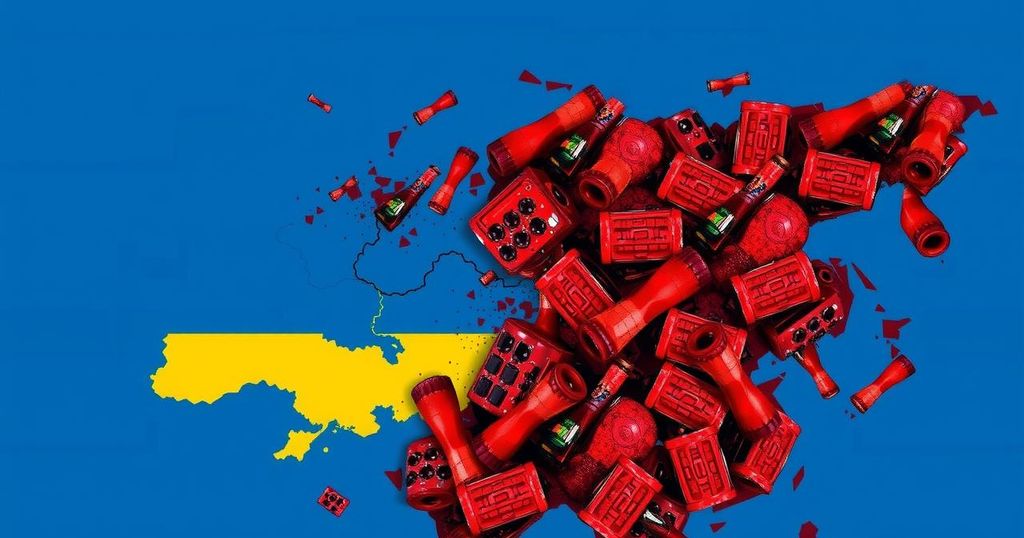Central Asian state media has overwhelmingly neglected Russia’s war in Ukraine, echoing Soviet-era practices of information suppression. Turkmenistan’s media fully ignores the conflict, while state-run platforms in Kazakhstan and other Central Asian nations similarly minimize coverage despite significant local impacts, such as the death of soldiers. Independent media, while providing more substantial coverage, face risks from state authorities and potential repercussions from Russia. Overall, the region displays a complicated interplay between state-controlled narratives and the efforts of independent journalism.
In Central Asia, state-controlled media has largely remained silent regarding the impact of Russia’s war in Ukraine, notably exemplified by Turkmenistan’s complete lack of coverage since the outset of the conflict. This absence of reporting echoes the Soviet-era tendency to suppress unfavorable information, thereby rendering issues like the return of deceased soldiers impoverished in terms of visibility in the media. Conversely, independent media outlets have continuously covered the ongoing war, albeit at great risk of incurring Russia’s disapproval, which has led many state-operated platforms to retract their reporting on Ukraine. Kazakhstan’s unique position, sharing a long border with Russia, has somewhat distinguished its media landscape; while caution prevails in their coverage, some officials have openly reiterated their refusal to recognize territories acquired by Russia during the conflict. This has not stopped Kazakh state media from choosing to report on distant events instead of addressing the war directly. Within the region, Uzbekistan and Tajikistan have essentially ignored the conflict on state television, while Kyrgyzstan’s public broadcaster only addresses significant developments with minimal coverage. In stark contrast, privately owned media outlets in Central Asia vary widely in their coverage of the war; some show restraint while others engage in frontline reporting prompted by crowdfunding efforts. Noteworthy amid these discussions is the pressure faced by media outlets that have reportedly incurred Russia’s ire—for instance, the Kyrgyz news agency 24.kg faced a severe crackdown following their interview with a Ukrainian battalion commander. Ultimately, even as media in Uzbekistan appears to have evaded similar repercussions, the overarching narrative in Central Asia remains heavily influenced by the delicate balance many outlets must strike, perpetuating a semblance of neutrality, particularly in Turkmenistan, where state media eschews virtually all international issues. The struggle for independent reporting continues in an environment where official narratives supplant the complexities of geopolitical realities.
The media landscape in Central Asia is deeply impacted by authoritarian governance and the influence of Russia. Many states in the region, including Kazakhstan, Uzbekistan, Tajikistan, Kyrgyzstan, and Turkmenistan, control their media narratives tightly, often suppressing coverage that could provoke the Kremlin. The region’s history of Soviet media practices is evident in the current dynamics, where information control remains a primary tool for state influence. The ongoing war in Ukraine has further illuminated this issue, with state-run media prioritizing reports unrelated to the conflict while independent outlets provide more honest, albeit risky, coverage. The situation raises questions about the role of media in authoritarian societies, especially in regions critically linked to Russian geopolitical interests.
In conclusion, the media’s reticence in Central Asia regarding Russia’s war in Ukraine illustrates the continued legacy of Soviet-era information control in the region. State media largely avoids coverage that could provoke backlash from Russia, opting instead for safer, unrelated topics. Conversely, independent media outlets face significant challenges as they strive for truthful reporting against the backdrop of potential state and Russian pressure. This duality underscores the ongoing tension between authoritarian governance and the pursuit of independent journalism in Central Asia.
Original Source: www.rferl.org






